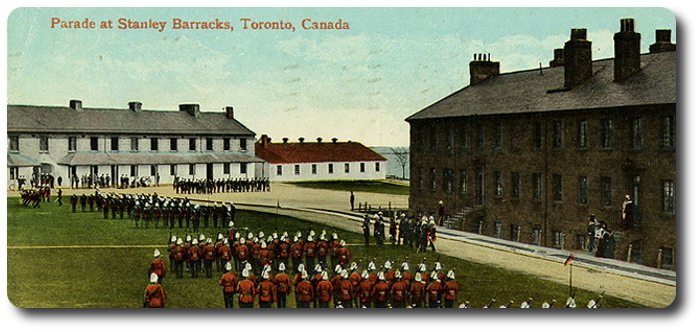Topic: Canadian Militia

Regarding Conduct and Character of Soldiers of Permanent Force (1910)
The King’s Regulations and Orders for the Canadian Militia, 1910
The main object of giving a soldier a certificate of character is to assist him in obtaining employment in civil life, and the certificate should be so worded that employers of labour can readily estimate the true worth of the man.
332. The guiding principle in examining a soldier's conduct sheets with a view to assessing his character, is to differentiate between a man's character as a soldier and his character as a man.
The main object of giving a soldier a certificate of character is to assist him in obtaining employment in civil life, and the certificate should be so worded that employers of labour can readily estimate the true worth of the man. In addition to recording his character, the certificate should contain any information which would show what qualification a man possesses as regards civilian employment, e.g., "thoroughly sober and reliable"; "accustomed to the care of horses and a good groom"; "a good clerk, painstaking and industrious"; also, if desired by the soldier, "wife (washerwoman, needlewoman, &c.)," or any other special qualifications which a woman may possess.
333. The success of arrangements for providing civil employment for a discharged soldier must, in a great measure, depend upon the manner in which the character of a man is estimated. If men recommended as of "good" character are found to be untrustworthy or unsteady, the confidence of employers of labour will not be gained. On the other hand, if, on account of comparatively trifling irregularities of a purely military nature, a man is refused a good character, his subsequent career in civil life may be injuriously affected. The responsibility, therefore, of a C.O. in this respect is very great, and his special attention is directed to the subject.
334. To ensure uniformity in estimating and recording a man's character while serving, or on discharge, the following terms will be strictly adhered to:—
(i.) Exemplary.
(ii.) Very good.
(iii.) Good.
(iv.) Fair.
(v.) Indifferent.
(vi.) Bad.
(vii.) Very bad.
335. In estimating the character of a soldier, a C.O. will take into consideration any entries in a man's medical history sheet for admission into hospital on account of alcoholism. In cases where the character recorded is "indifferent," "bad," or "very bad," the reason for recording which a character will be briefly stated in the "Proceedings on Discharge," the man's conduct as a soldier being separated as much as possible from his character as a man, for example— (i) "conduct indifferent, has been guilty of frequent acts of absence, but is smart, willing and hardworking;" (ii) "conduct indifferent, has been addicted to drink, but is a smart soldier and respectful to his officers," (iii) "conduct bad, has been guilty of desertion, but has proved a gallant soldier in the field." In cases where the character is recorded as fair, or upwards, the C.O. will supplement it (when in the soldier's interest) by the words:—
(a) No offence in whole service of ____ years; or
(b) No offence during the lat _____ years and (where applicable);
No instance of drunkenness in whole service of _____ years.
Any such particulars that can be truthfully recorded in favour of the soldier should also be inserted in his certificate of character, but the reason for assessing the character as indifferent, bad, &c., is not to be inserted in the certificate.
336. An "exemplary" character is the highest that can be given to any soldier, and is to be given only to a man whose period of service has enable his conduct to be thoroughly tested. It is to be reserved, therefore, for a man who has served for at least six years, who has not incurred more than the following number of entries in the regimental conduct sheet, and has been clear of an entry in the regimental conduct sheets for the periods stated in the subjoined table:—
| Length of Service— | No. of entries allowed in. | Years clear of entry in. |
| Regimental Conduct Sheet. | ||
| 6 and under 9 years. | 2 | 5 |
| 9 and under 12 years. | 4 | 6 |
| 12 and under 15 years. | 5 | 7 |
| 15 and under 18 years. | 6 | 8 |
| 18 and upwards. | 7 | 9 |
The C.O. is the sole judge of whether an "exemplary" character should be granted. Though the soldiers fulfills the above conditions, the grant of an "exemplary" character is discretionary and not obligatory.
337. In cases where a more favourable character than "fair" cannot be given to an N.C.O., the reasons will be briefly recorded in the proceedings on discharge, but not in the parchment certificate of discharge.
338. A bad character is not to be given to a N.C.O.
339. When a recruit is discharged before he has completed one month's service, and receives a good character, the words "during his _____ days' service" should be added after the word "good" in the proceedings on discharge and in the parchment certificate of discharge.
340. A duplicate or copy of the discharge, or extract from official records, will not be issued to a discharged soldier. A certified copy of the record of a man's service will be supplied to the officer charged with his payment, if asked for.

